Bridging the Divide: Informal Settlers, Government, and Stakeholders Unite to tackle Kampala's flooding crisis.
October 2, 2023
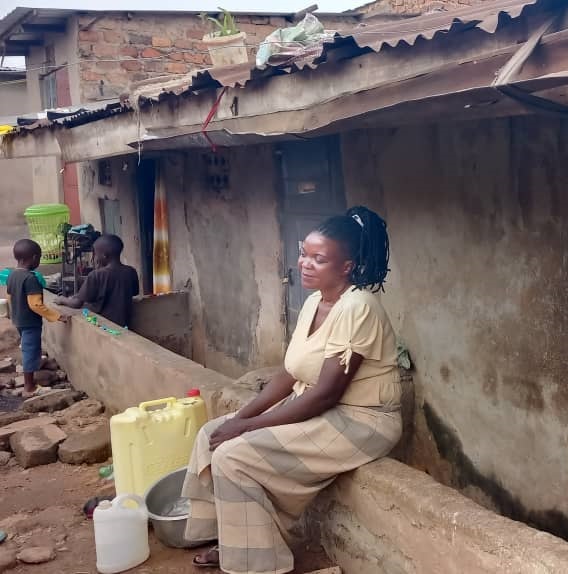
Sauda Nantume at her home in Makerere Kavule a suburb of Kampala
Meet Sauda Nantume, a resilient single mother raising five children in a one-room house. Her home is a fortress against the relentless floods that surround their low-lying neighborhood during the rainy seasons. Sauda's ingenuity shines as she fortifies her house with additional layers of concrete each year, attempting to control the intruding waters. But the heavy downpours often prove too much to handle. Like many informal settlers, she grapples with property losses, health issues, and the constant danger to her children, all because her home occupies what was meant to be a stormwater drainage pathway.
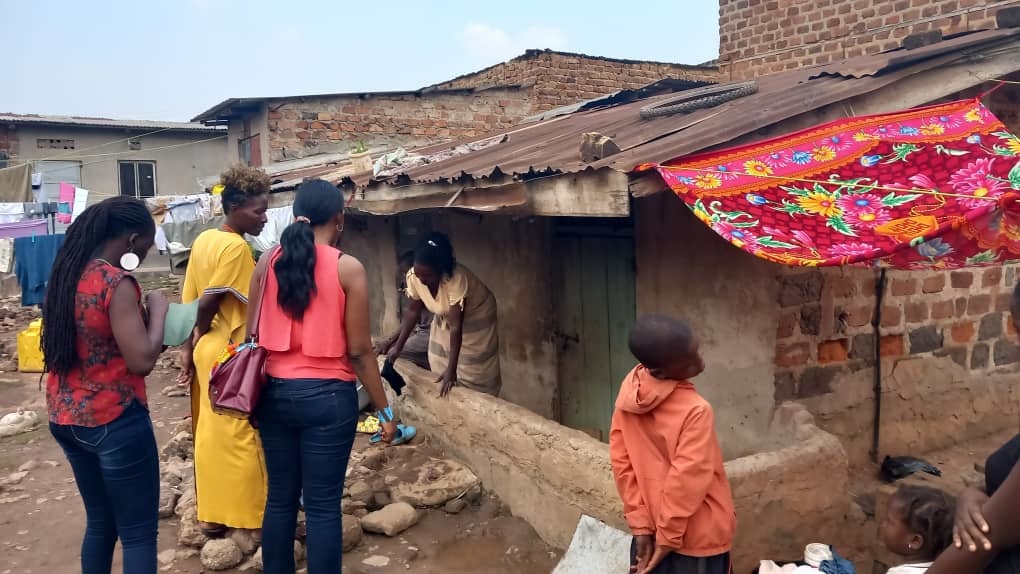
Sauda demonstrating how she climbs her raised veranda to prevent storm water from flooding her house.
As Kampala grapples with the recurring flood problem, the United Nations Development Programe (UNDP) Uganda Accelerator Lab took the initiative to organize a sensemaking workshop. This gathering brought together a diverse array of stakeholders in the housing sector, including government officials, the Buganda Land Board overseeing the Buganda Kingdom Land, development partners like UNDP and UN Habitat, the Kampala Capital City Authority (KCCA), civil society organizations, private sector representatives, and, most notably, the informal settlers themselves—often overlooked voices in such discussions.
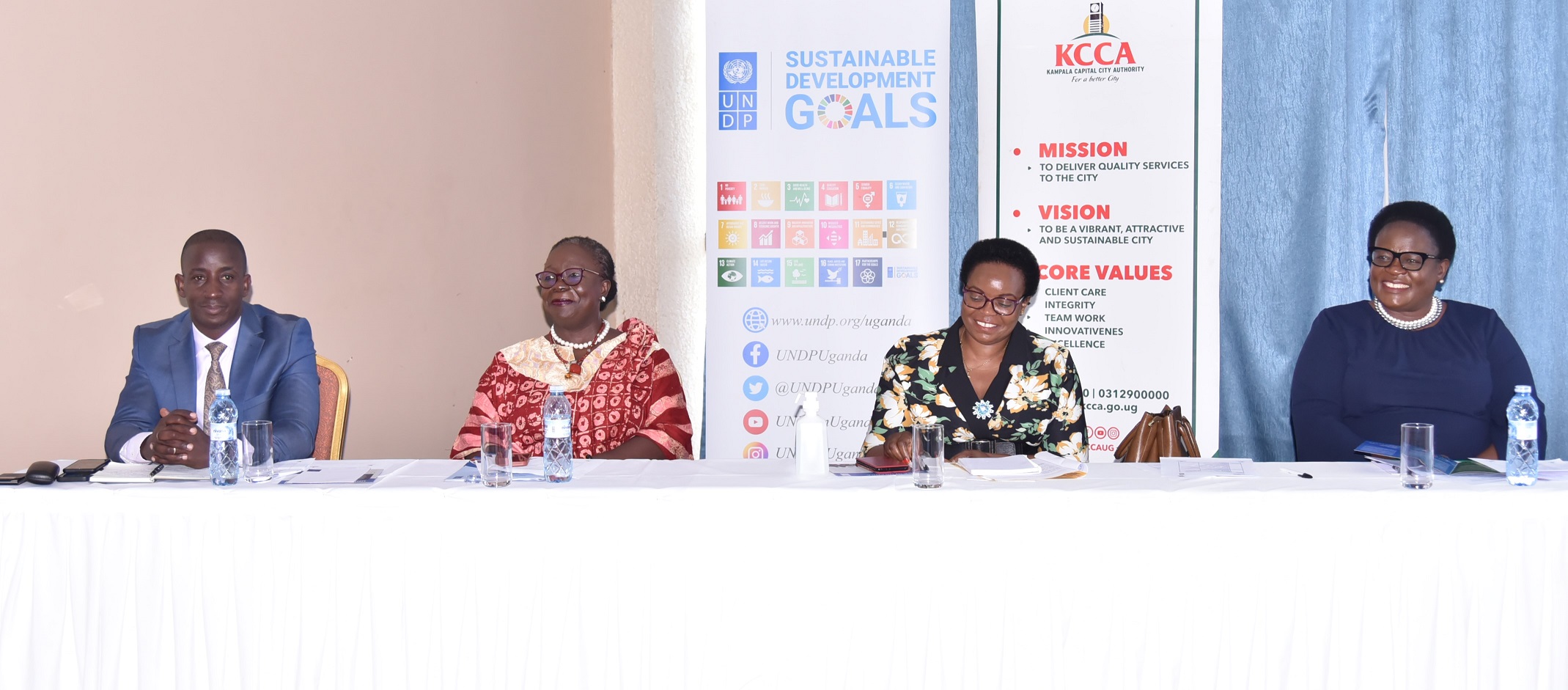
From left-right: Buganda Land Board CEO, Mr.Kabogoza Simon, UNDP Resident Representative Ms. Elsie Attafuah, Minister of State for Housing Hon. Persis Princess Namuganza and KCCA Executive Director Ms. Dorothy Kisaka
For these informal settlers, their challenges extend far beyond their choice of residence. In addition to the geographical disadvantage, issues like poor waste management, the absence of sanitation facilities, and a deficient drainage system compound their hardships. The informal housing structures and overcrowding further exacerbate the problem.
In a quest to address this multifaceted issue, the workshop aimed to foster collaboration and collective brainstorming. Informal settlers had already identified potential solutions, including enhanced waste management and drainage systems. These suggestions were presented to Minister Hon. Persis Princess Namuganza and the Kampala Capital City (KCCA) Executive Director Ms. Dorothy Kisaka. The workshop served as a bridge, connecting grassroots ideas with government support.
How big is the Problem.
Housing, a fundamental human right, remains an immense challenge in Uganda. The housing deficit stands at a staggering 2.4 million housing units, with 210,000 in urban areas and 1.395 million in rural areas (Habitat for Humanity, 2020). Of these, approximately 900,000 units are substandard and require replacement or upgrades, with the majority concentrated in informal settlement areas around cities.
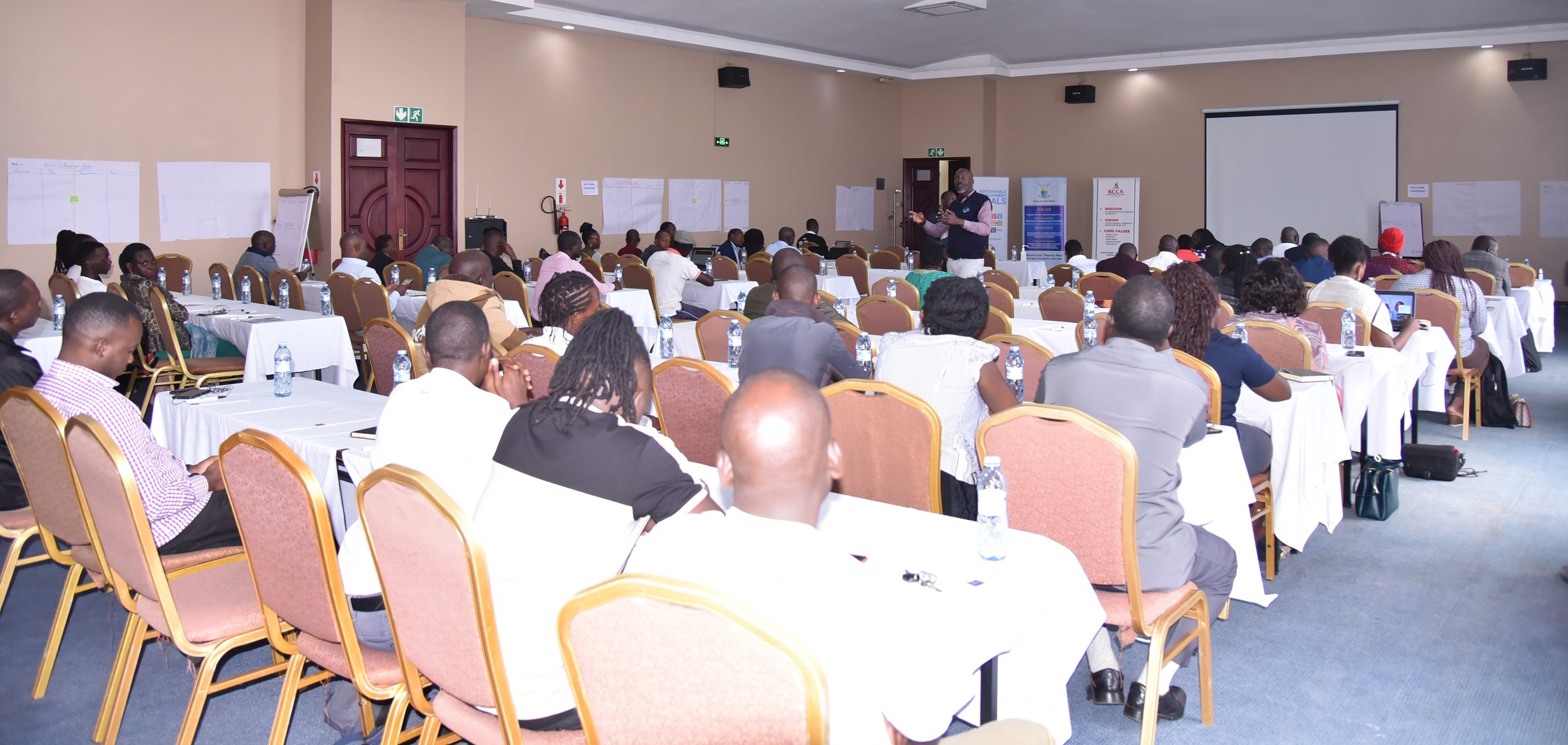
Participants during the Sensemaking workshop.
Uganda's current urban growth trajectory is unsustainable, characterized by jobless urban expansion leading to increased crime and insecurity. Inadequate physical planning has resulted in unplanned settlements, including risk-prone areas. Moreover, a shortage of social services, public infrastructure, and housing exacerbates the issue. Climate change vulnerability further complicates matters. To tackle these challenges, Uganda's third National Development Plan (NDP III) seeks to reduce urban unemployment from 14.4 percent to 9.4 percent and decrease the percentage of urban dwellers in slums and informal settlements from 60 percent to 40 percent.
Uganda is experiencing rapid urbanization, with an annual urban growth rate of 5.2 percent. Kampala City and the new cities grapple with a large informal sector (over 80 percent), escalating youth unemployment, urban poverty, and inequality. Addressing these complex issues necessitates the collaboration of numerous stakeholders, given the fact that government alone cannot address these issues as they too have limited capacities and conflicting interests. It is imperative to bring these stakeholders together for collaborative processes that lead to innovative and holistic solutions.
Navigating towards solutions
Addressing such a big challenge requires a step-by-step approach. The proposed solutions from the community members, while promising, remain untested. It was suggested that integrating smart city solutions into informal settlements might offer tailored responses to their unique challenges. Collaborating with stakeholders, including residents, community leaders, authorities, academia, Non-Government Organizations (NGOs), and the private sector, is paramount. Innovation and collaboration serve as the foundation for comprehensive and sustainable flood solutions within the city. The establishment of clear policies and adaptable governance structures will guide implementation and ensure effective coordination. Inclusive and participatory governance approaches are essential in informal settlements.
Hon. Persis Namuganza, Minister of State for Housing, commended the unique approach of involving the affected individuals in the decision-making process, rather than designing interventions in isolation. She pledged support for the development of a program document with clear interventions.
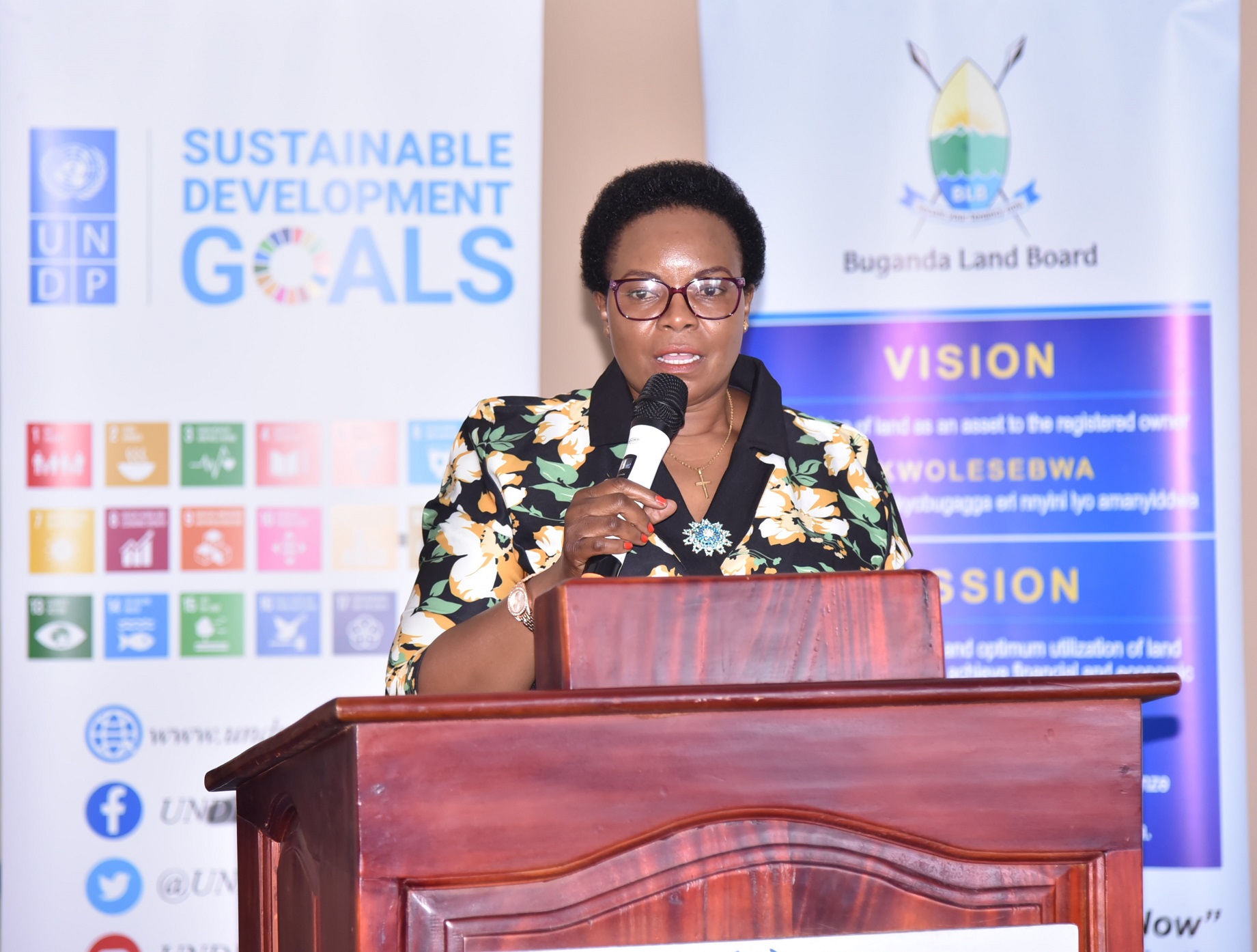
Hon. Persis Princess Namuganza Minister of State for Housing
The UNDP Resident Representative Ms. Elsie Attafuah hailed the workshop as an opportunity for diverse partners, including the unconventional stakeholders, those living in informal settlements and their local leaders, to collectively identify new pathways for transforming Kampala's slum areas and communities within the broader smart cities’ agenda. She reiterated UNDP's commitment to achieving the Sustainable Development Goals, particularly SGD 11: "Making cities and human settlements inclusive, livable, productive, safe, resilient, and sustainable."
Ms. Dorothy Kisaka, KCCA Executive Director, emphasized the need for an integrated approach to implementing interventions, with committed partnerships such as those with UNDP and BLB, along with the active participation of residents themselves. This collaboration holds the potential to transform Kampala's informal settlements into smart cities, addressing the pressing issue of floods.
Next Steps
As we embark on the experimental phase of these proposed solutions, we will diligently document the lessons learned. These insights will inform the joint program, not only for flood mitigation but also for unlocking urban investments, leading to an inclusive and sustainable smart city, one that Sauda and her fellow residents can thrive in. Stay tuned for the next blog, where we delve into the application of systems thinking that guided our exploration of these complex issues.
Authored by Hadijah Nabbale, Head of Solutions Mapping; Berna Mugema, Head of Experimentation; and Nathan Tumuhamye, Head of Exploration.

 Locations
Locations